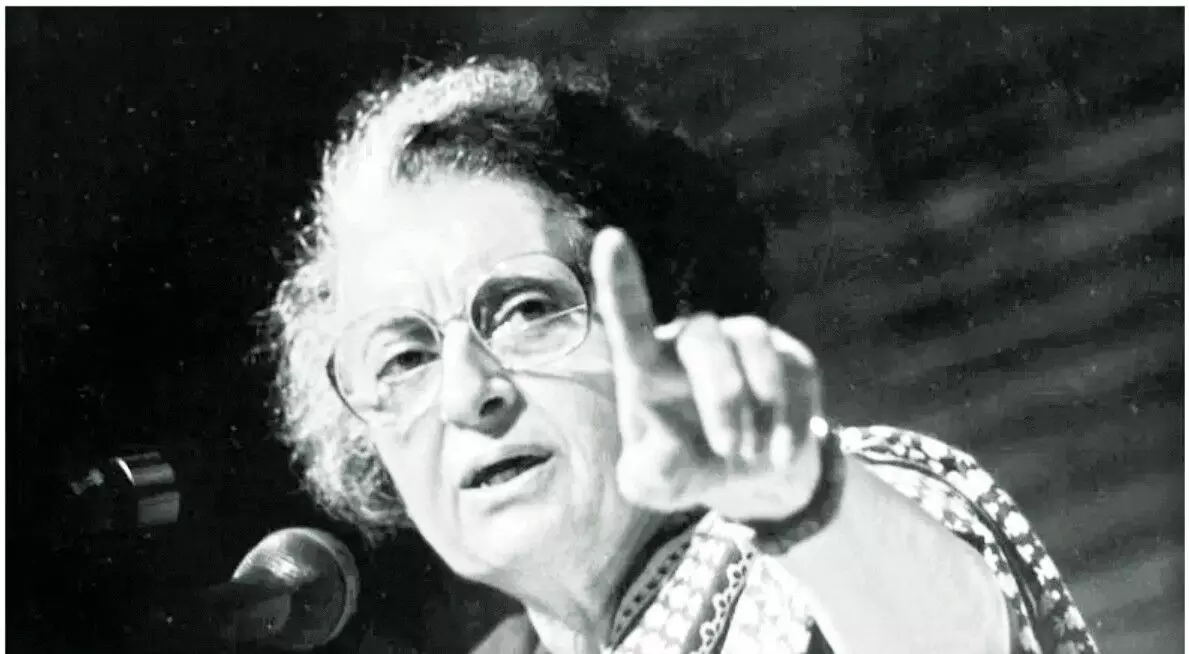Mosaic of Mixed Memories
Edited by Sayantan Nandi & Indrani Deb, The Seventies unravels one of India’s most restless decades, bringing together politics, culture, economy, and memory into a vivid mosaic

Bell-bottoms and protests, transistor radios crackling with cricket commentary, political slogans painted on crumbling walls, and the scent of filter coffee in crowded college canteens — the India of the seventies was a study in contrasts. It was a decade when hope and uncertainty coexisted, when global currents crashed into local realities, and when ideas of democracy, culture, and identity were tested in ways that still echo today.
The Seventies: Turbulence to Transition captures this layered decade through an impressive spread of scholarship and memory. Edited by Sayantan Nandi and Indrani Deb, the volume moves beyond a narrow political lens to weave together the 1970s’ political, social, cultural, economic, educational, and personal dimensions. The range of contributors, from academics to memoirists, ensures that the period emerges not as a single narrative but as a mosaic of experiences and transformations.
The opening section on historical, political, and social perspectives sets the stage. Basudeb Chaudhuri examines the decline of the Left and the genealogy of a liberal-democratic crisis, while Gautam Bhattacharya reflects on a week that shook the modern world. Kingshuk Chatterjee takes the reader into the oil shock and its aftermath, showing how the seventies reshaped global politics. Rekha Datta analyses Indira Gandhi’s leadership during the 1971 Bangladesh War and the political undercurrents it generated. Rachana Chakraborty explores the Partition of Bengal and the Liberation War through the imagery of mother and motherland, and Anindita Ghoshal juxtaposes popular narratives with the grim realities of genocide and displacement in the North-East.
Aparna Bandyopadhyay revisits the landmark ‘Towards Equality’ report, tracing the women’s movement’s path, while Supratim Das locates the intellectual roots of Subaltern Studies. Sunip K Sen revisits the Kesavananda Bharati judgment, and Sauvik Majumdar reflects on the era through the pages of a Bengali daily.
The section on culture, performative arts, and sports blends political climate with cultural change. Sayantan Nandi examines the anti-hero and the metaphor of anger in seventies cinema, Indrani Deb analyses Kate Millett’s Sexual Politics and its resonance in India’s cultural transition, and Suhit Sen writes on the “total revolution” in football. Jayanta Sengupta takes a sociological detour to the Bengali kitchen of the era, Tapu Biswas revisits the theatre of Badal Sarkar, and Rajat Ray explores shifts in modern architecture.
Education in the seventies is the focus of Chhandam Deb’s study of Paulo Freire’s pedagogical influence, Sukanta Chaudhuri’s blend of memoir and institutional history in The Campus and the World, and Chandrakala Datta’s exploration of women’s higher education debates in Calcutta. The science and technology section ranges from Angshuman Guha on the computing genius Dijkstra, Pathikrit Bandyopadhyay on the Voyager-I mission, to Asoke P Chattopadhyay on the decade’s impact on physical and biological sciences.
Personal reflections close the volume, with Supriya Chaudhuri evoking Presidency College in the early seventies, Kalyan Chatterjee recalling his student years, Prasad Ranjan Ray offering a bureaucrat’s memoir, and Sugata Marjit reflecting on growing up amid volatile politics.
The book’s strength lies in its interdisciplinarity and the editors’ refusal to smoothen the rough edges of a decade marked by deep contradictions. From grassroots gender struggles to global energy crises, from judicial milestones to cultural ferment, the chapters create a textured portrait of India negotiating modernity, democracy, and identity under stress. This is not merely a political history of the Emergency years but a richer, messier account of a society in transition.
For scholars, students, and general readers alike, The Seventies: Turbulence to Transition offers both breadth and depth. It insists that the seventies cannot be reduced to a single narrative and rewards those willing to explore its many layered stories.
Views expressed are personal



